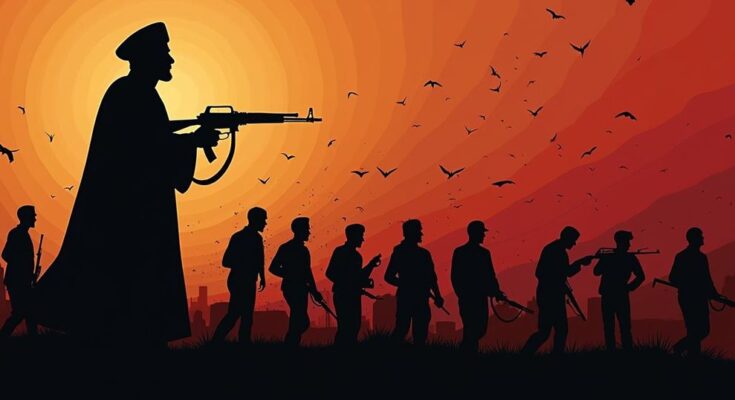Hassan Nasrallah’s death highlights the ongoing challenges in the Middle East, particularly for Israel’s military strategy which has proven ineffectual in providing lasting peace. Nasrallah transformed Hezbollah into a formidable political and military force, gaining both respect and criticism. His legacy indicates a complex interaction between regional dynamics and the realities of governance that complicate the aftermath of his assassination, suggesting a bleak outlook for both peace and rights in the region.
The death of Hassan Nasrallah, the leader of Hezbollah, poses significant implications for the region, particularly for Israel, which has historically viewed military action, including assassinations of key figures, as a viable path to addressing complex geopolitical challenges. Yet, the lessons learned from the past remain relevant: merely removing a leader does not guarantee peace or stability. Nasrallah’s ascent to power was marked by charisma and military strategy; however, this did not preclude him from becoming a symbol of corruption within a larger framework of violence and authoritarianism. Under Nasrallah’s leadership since 1992, following the assassination of his predecessor Abbas al-Musawi, Hezbollah’s military arm proved instrumental in expelling the Israeli military from southern Lebanon. His transformation of the group involved a shift towards targeted guerrilla warfare and away from indiscriminate violence against civilians, achieving a significant military victory in 2000. Despite gaining acclaim for resisting Israel, Nasrallah’s brand of governance drew criticism for authoritarian practices and involvement in various regional conflicts. The recent assassination of Nasrallah was executed not as a precise strike but through a violent assault that caused substantial civilian destruction. Israeli leadership may tout the act as a military success; however, such high-stakes operations carry unpredictable repercussions. Nasrallah’s legacy extends beyond his personal charisma to systemic issues within Lebanon and its political landscape. During his tenure, Hezbollah evolved from a resistance movement into a central element of Lebanon’s elite ruling classes, contributing to the exacerbation of local corruption and violence. As Israel intensifies its military actions following the October 2023 assault, it may replicate past mistakes by destabilizing Lebanon without achieving long-term security outcomes. Nasrallah’s leadership style and ideology, influenced heavily by Iranian support, may outlast his physical presence, especially as Hezbollah retains significant power rooted both in militant activity and a complex economic framework. His successor could either strive to reclaim the image of a revolutionary force or revert to a more militant, guerrilla-oriented strategy. Notably, the current geopolitical climate fosters conditions conducive to extremism and violence rather than sustainable peace. The narrative of force over diplomacy remains entrenched, leading to a bleak outlook for both Lebanese and Palestinian aspirations for governance and rights. Ultimately, the cycle of violence perpetrated by state militaries, such as that of Israel’s offensive actions, fails to provide the promised peace, potentially leading to an era marked by chaos and enduring conflict in the Middle East.
The analysis of Hassan Nasrallah’s impact on Hezbollah and the broader Middle Eastern conflict centers on the continuous cycle of violence that has characterized regional interactions. His leadership has seen Hezbollah transition from a resistance group to a dominant political entity in Lebanon, significantly influenced by Iranian support, regional conflicts, and shifts in popular sentiment. Military actions by Israel, including the assassination of key leaders, have historically proven ineffective in bringing about lasting peace, often resulting in adapted tactics and heightened tensions.
In conclusion, Nasrallah’s death may not provide the anticipated resolution to ongoing conflicts; rather, it may deepen existing rivalries and prompt Hezbollah to adopt more ruthless military tactics. The historical context reminds us that force does not equate to resolution in diplomatic matters, and the cycle of violence only leads to further instability. As the region grapples with the implications of this significant power shift, the prospects for peace diminish, raising concerns about the future governance and civil rights of the people within Lebanon and the broader Arab world.
Original Source: foreignpolicy.com




